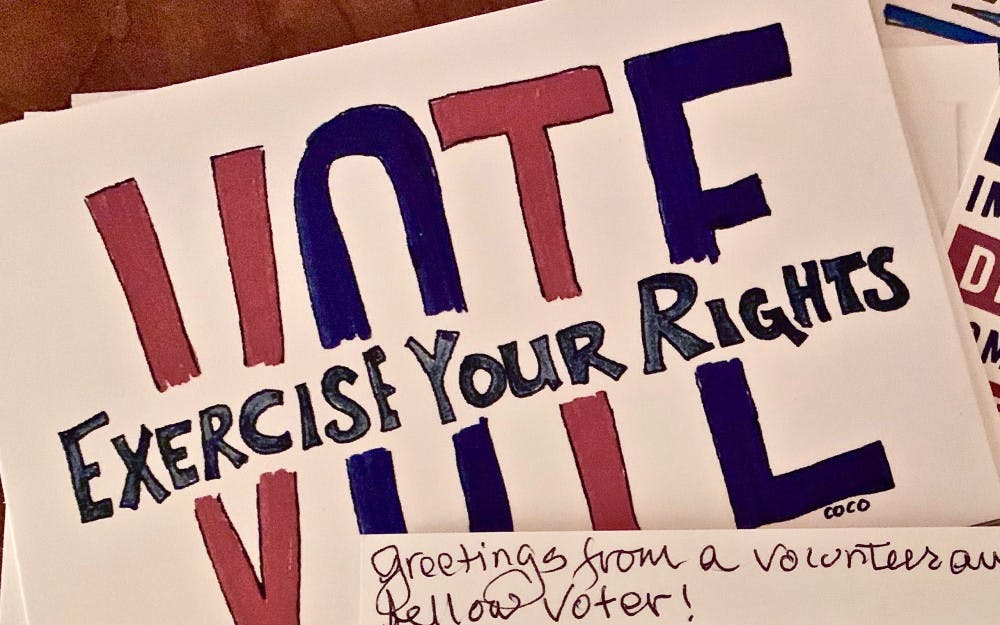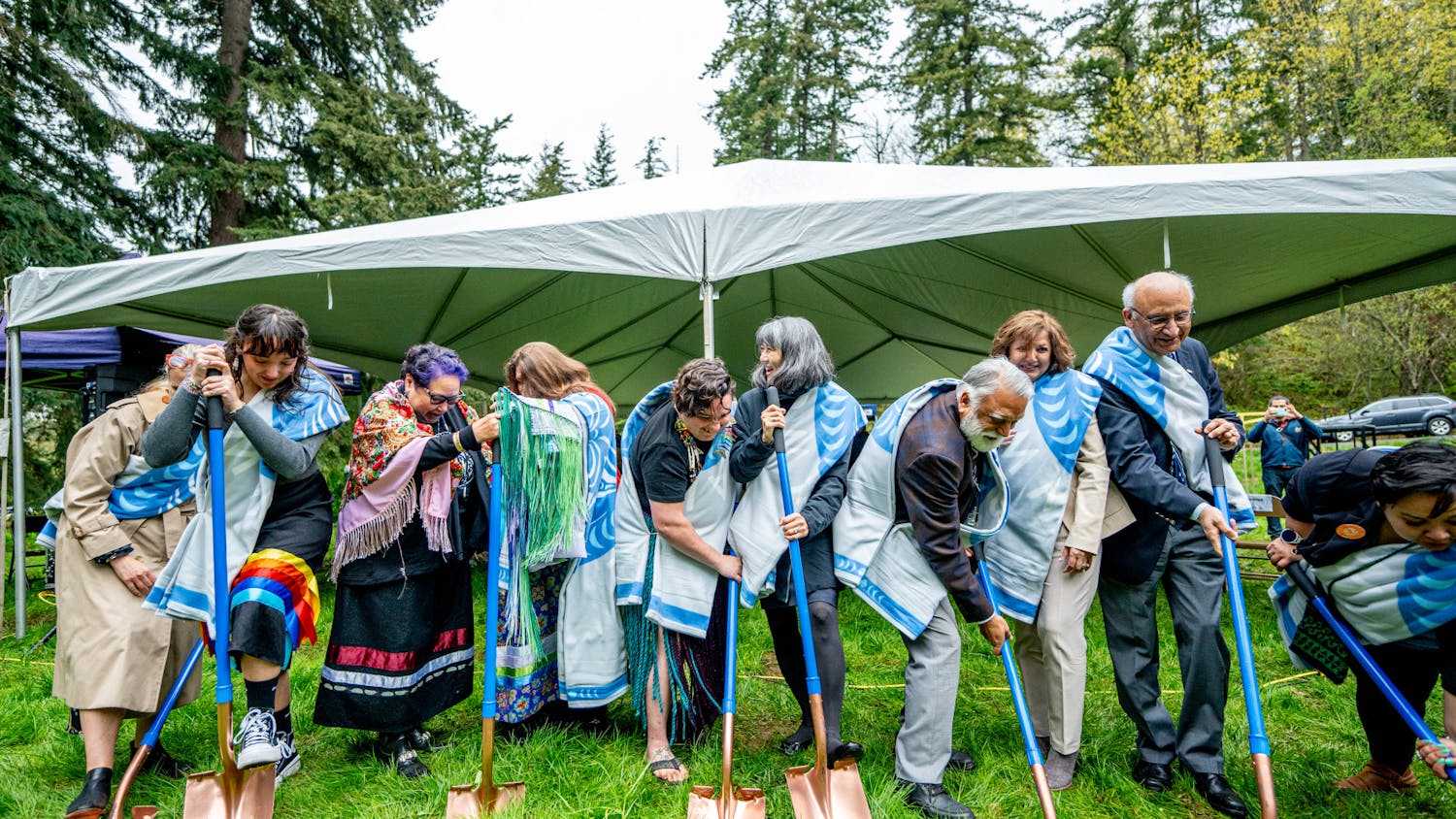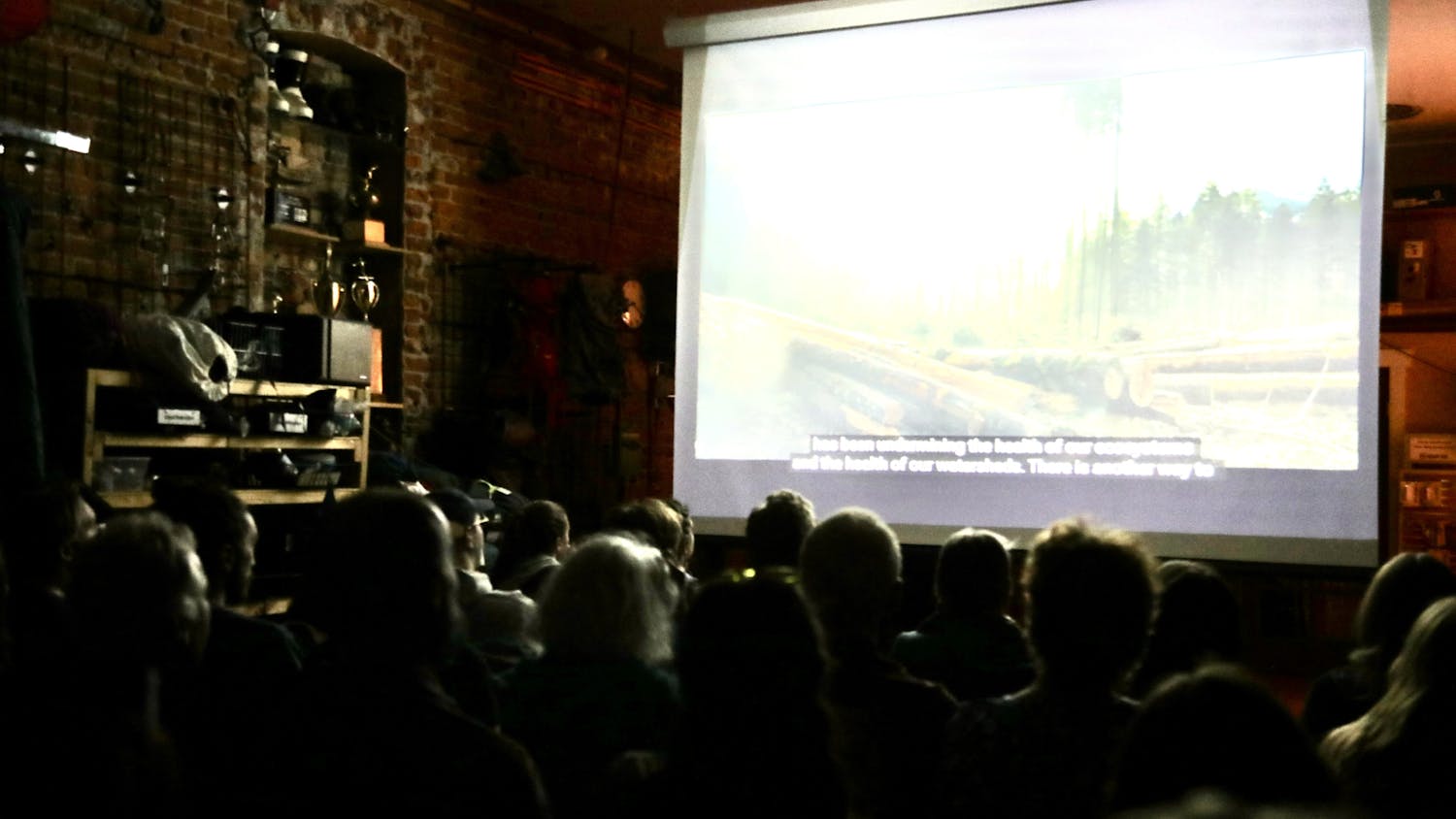
Washington state shows voting by mail is safe.
By Olivia Hicks
While skepticism about mail-in voting has clouded the 2020 presidential election, Washington state has a history of voting by mail.
Lee Willis, a 75-year-old Bellingham resident, has written roughly 15 postcards per week since the spring of 2020, urging Americans across the country to vote by mail this November.
“If voting by mail is standard in this country, it should help to level the field to some degree,” Willis said.
Washingtonians began voting by mail before 1983, when the Washington Legislature encouraged voters over 65 years old and residents with disabilities to vote by mail. In 2005, voting by mail became permanent in state, county and city elections if a county would choose to allow the method. By 2011, all elections statewide required mail-in voting, according to the Washington State Vote-By-Mail Fact Sheet.
Willis is using her positive experiences to encourage residents in other states to vote by mail.
“Your Vote Matters!” reads a postcard from Willis, encouraging a Texan Democrat to vote early for state Rep. Eric Holguin this November. The postcards are provided by the organization Postcards To Voters.
Willis said she is aware of the value of mail voting, but looks back on in-person voting with a sense of nostalgia.
“I really liked going down to the local grade school, casting my ballot, taking my son with me and my dog and meeting the neighbors,” Willis said. “It felt like a sort of tradition that had been going on since the beginning of the country, of people getting together to cast their ballots. And it just felt so beautifully grassroots.”
Despite missing the community aspect of polling places, Willis said there are many benefits of voting by mail, especially for older people during COVID-19. Both she and her husband live with chronic illness.
“Certainly, I wouldn't feel comfortable going to a poll in this pandemic time,” Willis said. “There may come a time when I don't feel like I can leave my husband. He has had Parkinson's for almost 30 years. This way, we can just drop our ballots off at the ballot box.”
Both the Whatcom County Republican and Democratic parties recognize the advantages of mail-in voting.
“You reach every voter at their home, and they get to take as much time as they need to figure out the entire ballot,” said Andrew Reding, chair of the Whatcom Democrats. “We give you plenty of time to go around, hunt on the internet, consult with others, do some research and know what you're doing down the ballot. You've got more of an informed vote when you have a mail ballot with ample time to respond.”
Reding said there are two timely advantages of mail-in voting: risk aversion during COVID-19 and a paper trail that determines the validity of each ballot.
Kathy Kershner, the chair of the Whatcom Republicans and county council member, said she is advocating for voters to fill out the ballot early and put it in a county dropbox. However, she also expressed concerns about non-citizen residents voting by mail.
“Our main concern is that if we're going to have a mail-in voting system, which we have, that we want to make sure that the voter rolls are accurate and that only people eligible to vote are voting in the elections,” Kershner said. “I think all Republicans in Washington state have the same issue: that Washington state has no checks and balances on who registers to vote.”
While Washington state law does not verify citizenship upon registration, it does allow a local challenge of voter registration with evidence, according to Kylee Zabel, communications director for the Office of the Secretary of State.
The Washington State Department of Licensing implemented enhanced driver’s licenses and IDs that require citizenship verification. Voters also must provide a state ID, driver’s license or social security number in order for their vote to count, said Zabel.
Diana Bradrick, Whatcom County auditor, said while there are fears of non-citizens voting, there is no concrete evidence in Whatcom County. The voter registration process is also the same as before, when in-person voting was an option; it is not solely a mail-in voting concern, Bradrick said.
The validity of mail-in ballots has been questioned since President Donald Trump has warned of fraudulent ballots and is underscored by such instances as the California Republican Party placing more than 50 deceptive ballot boxes throughout the state.
In response to voter fraud claims, The Washington Post’s analysis of the 2016 Presidential election data found only four documented cases of voter fraud.
The Union of Concerned Scientists Center for Science and Democracy calls for voting reform and a streamlined system, including an end to gerrymandering, a meticulous verification process to rectify ballot mistakes and training for signature verification judges. According to the Union of Concerned Scientists, these refinements would ensure voting by mail is equitable for those whose ballots are turned away at higher rates: Black and Latinx voters.
“What we see in particular states in the South, sometimes even states that actually have considerable vote-by-mail … is some pretty severe racial disparities in terms of rejection rates across counties and across precincts,” said Michael Latner, Senior Fellow at the Union of Concerned Scientists Center for Science and Democracy. “You also have data disparities in terms of the quality of election infrastructure.”
States with more mail-in voting experience tend to have a smaller gap in ballot rejection among racial groups, Latner said. Only 0.7% of 2016 general election mail-in ballots were rejected in Whatcom County, according to the Washington state 2016 Report of Elections.
The Washington State Vote-By-Mail Fact Sheet recognizes four disadvantages to mail-in voting: material prep time, equipment engineering, lag in reporting results and staff expertise.
For Willis, there was not a stark difference between mail-in versus in-person voting. However, COVID-19 has outlined additional benefits to voting by mail.
“I haven't really thought, ‘Oh, thank goodness! I don't have to stand in line at the polls.’ But it's true as we get older and have health issues to deal with, it makes it possible to vote until the day I die,” Willis said.
To ensure ballots are received, voters can track their ballot status via VoteWA.





